暖冬cool夏
这里一年四季温暖如春,没有酷暑没有严寒......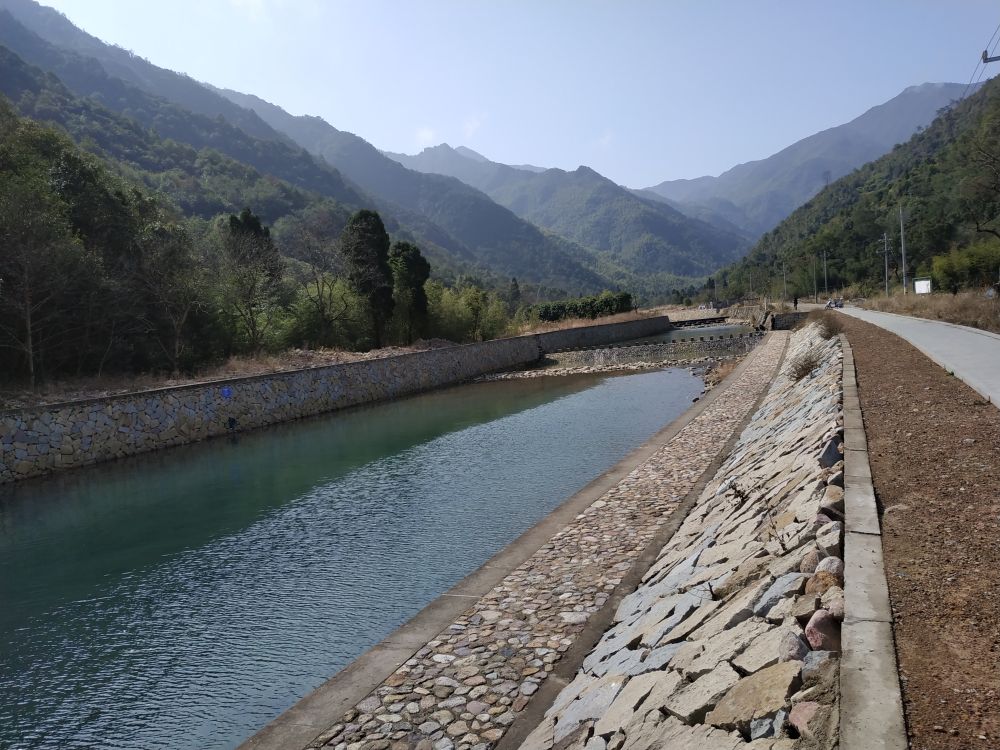
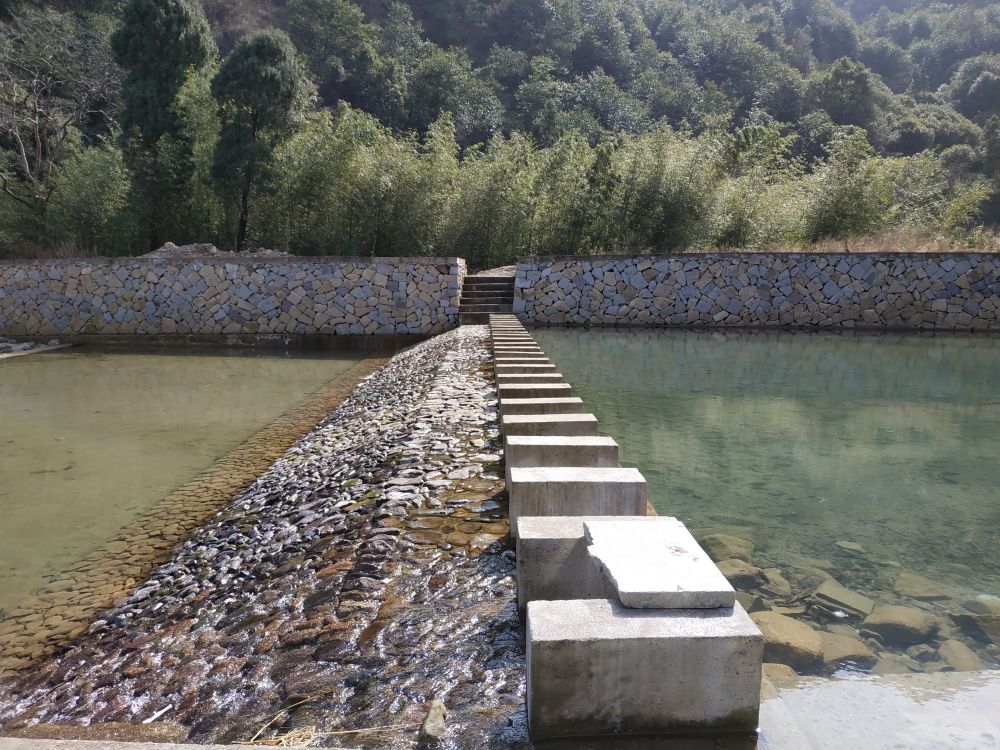
Some of my childhood memories were a blur, and became more blurry when I strolled in an old city in which I was born and raised. The re-structured city, like breaking puzzles, polished and put them back again, took on a new and strange face. Was this the hometown that I spent my first twenty years? The old square where people in 1970s gathered for revolutionary slogans gave away to modern commercial buildings; the rickshaw sedan witnessed as late as 1990s were nowhere to be seen. Modern cars were sprawling instead. Though this was not the first time I went back home to see my parents, who moved to a new home after I came to the U.S., I couldn’t connect it well.
In the afternoon of the second day of Chinese New Year, my brother, my father and I decided to visit the old campus at the other end of the city. It is the place where my father spent almost his entire life teaching and working. It is the place where my brother and I had our most memories. When the car was let in and crawled along a narrow road, flanked by old leafless phoenix trees on both sides, old memories flooded in. The same entrance, the same basketball courts, the same buildings for teaching and library, the same location for cafeteria, all remodeled, of course.
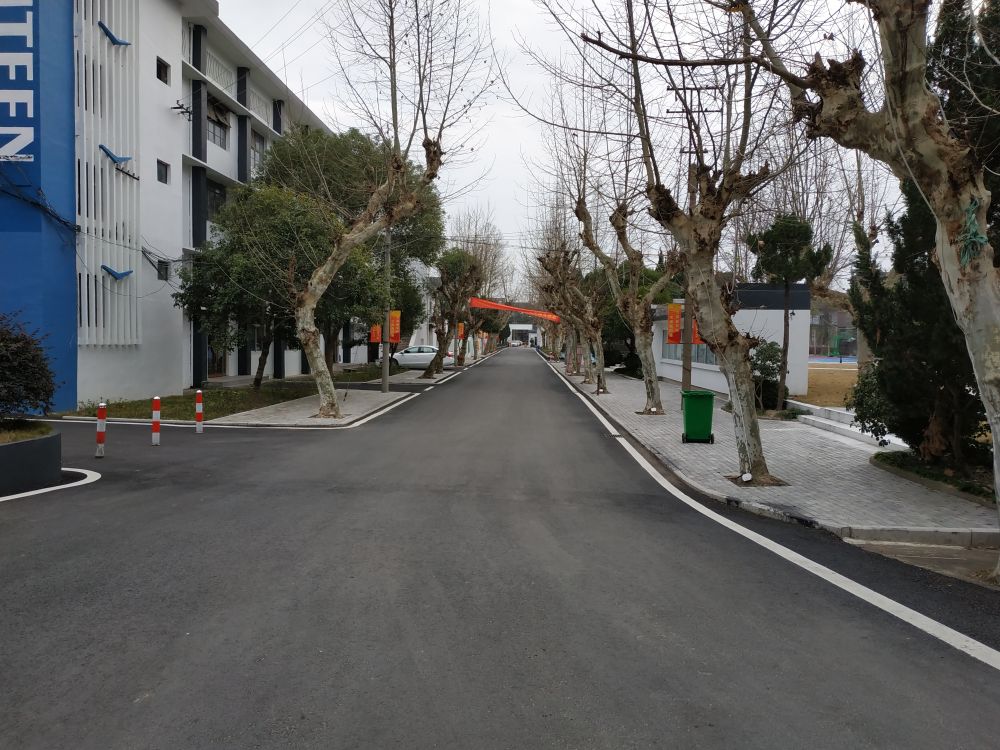
We parked our car in front of a new building and got off. Dad pointed out to an endangered building sheltered in a corner, and asked us if we remember anything? In an instant, we recognized that it was an administrative building Dad once worked in for years.
As we continued our walk and stepped over a small iron gate at the back, a familiar passage by the side of a high solid wall came to our sights. Stood on the other side were the three high residential buildings for teachers, weathered and shabby now after being there for more than four decades. Entering the last building, which we dwelled in 1980s, was like lifting a lid off my memory well, distant but clear. What resurfaced on my mind was the then excitement of moving down from a moist one-floor bedroom uphill, where water cannot be supplied sufficiently and where we did not have our bathroom but a shared stingy public one. The then new apartment was around 40-50 square foot, with three bedrooms, one tiny kitchen and a simple bath. I had my own room, and my brother had his. My room was smaller, with a window facing north, a bed by the walls, a wardrobe on the corner, and a desk by the window. Many a day I studies late into night, for the National Standard Tests, with a dream that one day I could land a good college……
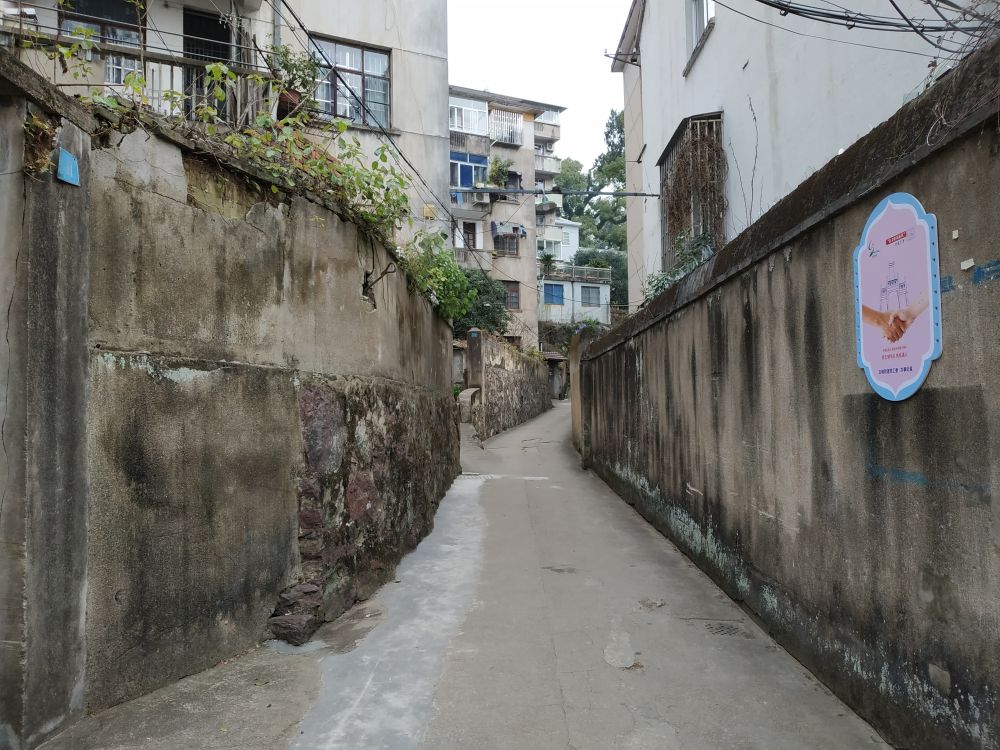
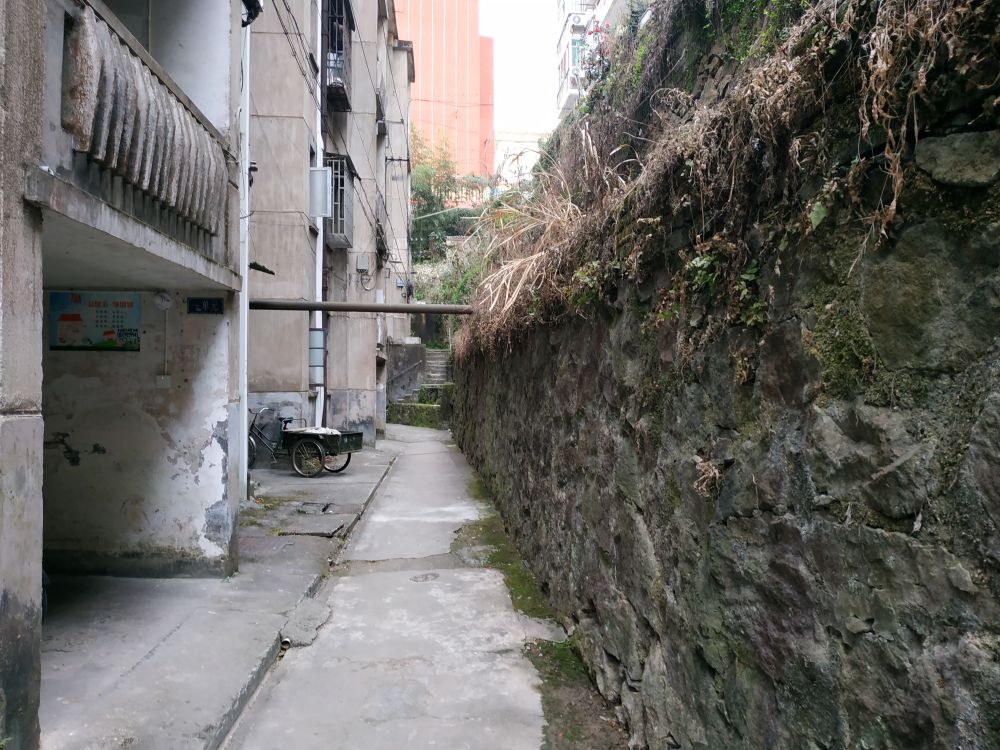
The flurry of memories was interrupted when my brother suggested walking further uphill. A flight of stone stairs led us up, and we both stopped at an old shallow well. The well was at the bottom of cornered walls, with scattering plants and small patches of green moss around the area. This water, seemingly murky, is said to be trickling down from the stream in the mountains. It was this well that I frequented when our household ran out of drinking water. Mom used to give me a scoop and a pail or two, and gingerly I scooped the upper part of the water, not to stir the mud or sediment at the bottom. When the pail(s) was/were full, I carried home up along the long stairs, stopping in the middle for a breath. This could be repeated within a day, depending on the need. Alum (明矾) was then used to settle turbid water before cooking or drinking. Of course, we had better water sources, wells deeper and water more purified. However, they were further away. Mom and I had to trek along the meandering mountain road, carrying a big heavy bucket hung in the middle of a pole from our shoulders. This well, locally known as a “frog well”, was once our closest water source. The sight of its being well-preserved made me relive the moments.
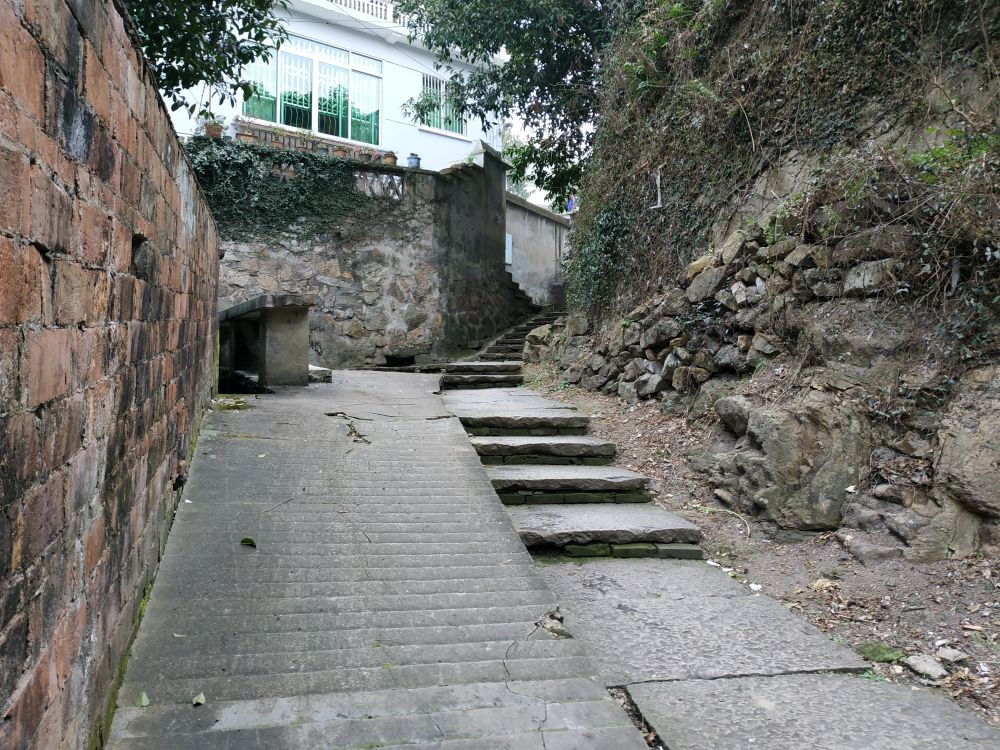
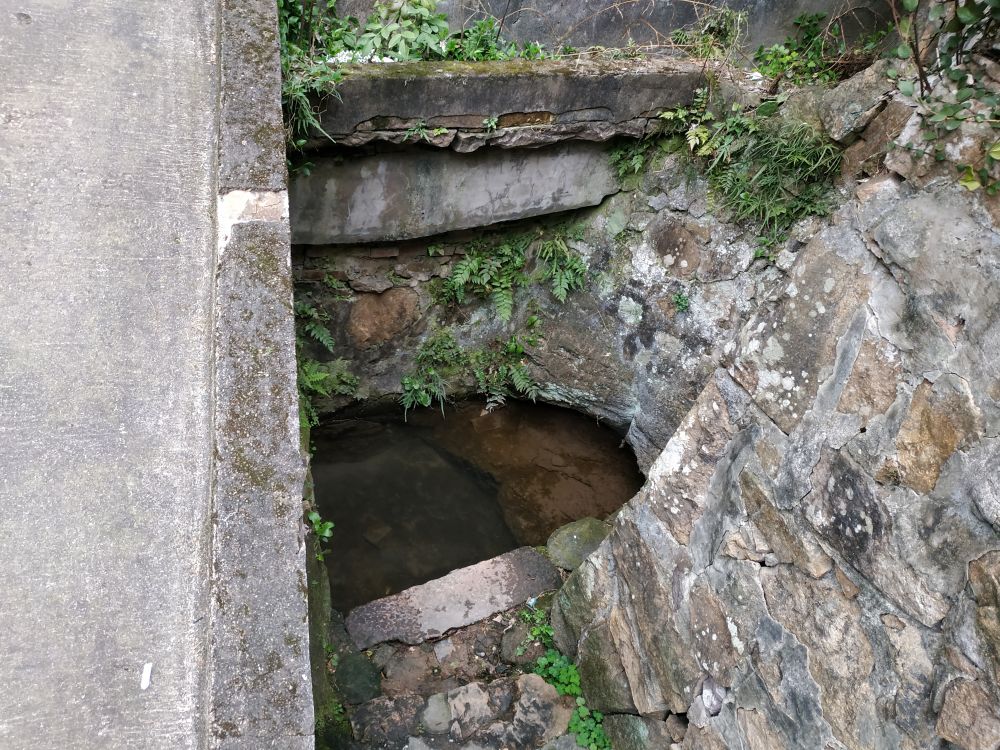
Our visit soon came to a halt, as the courtyard where we shared with other ten families before moving downhill was abolished and replaced by a new building. Barred by a gate and blocked by a high wall, we were like visitors that could not see what was beyond the wall, a place that had our fondest childhood reminiscences.





故乡情,故乡行,故乡的故事说不尽。
暖冬深情的文字令人动容!
提醒没读英文部份的朋友,其实英文的内容在中文部份是没有的。感觉英文的内容情真意切,还有些许惆怅。回不去的童年,回不去的家乡。
这次回去的收获真大。在墓地也有人说不要把照的相带回家,说是不吉利什么的。
我跟子乔也说将某人变成圣经《雅歌》书里面的良人:)
周末好!
唐西也来开博吧,你诗文俱佳,记录下来啊。我来看看汪峰的歌来听听。谢谢你,周末快乐!
我相信轮回,相信灵魂,相信边神。;)
赞土豆的献身精神!
你还让现人多食,哈哈哈!
我都说博主是才女一个,你看看,这情商,居然把某人这么贴切地用中英文来表达,某(M)人(R)=Mr,胜过LD,胜过什么领导。
最后我成了Mr.服
这个周末还准备来盘桂花鱼招呼良人,远在天涯海角的我们是吃不到的啦,倒是想说,放上汪峰的Mr.Man,作为背景音乐,然后饭前先默读:
家事相寻爱与恨,某人别来倦成疲。
欲知日晚在何许,唯说碟中有桂鱼。
改自宋朝,黄庭坚的诗句。
接着,动筷吧!
我的英文里没有出现my mother是因为那日母亲没有一同前去,而这篇英文就是那一天的日记而已。
我不住西雅图的,Btw,你这个桂花鱼我倒是可以试着做做的:)不过,国内的生活真是方便,吃的好,蔬菜品种多,也便宜。
'另外,你真是博学多识,连老外对墓地的讲究都知道。谢谢你这个墓地不能拍照的解释,很make sense,让我涨知识了。
最后一句也说得很对,越是小地方的人,越重师生情义,以后没饭吃了,就回老家,混口饭吃还是有的。再次感谢唐西的留言和知识,祝福你的2019!
这”某人”的英文翻译还真不好拿捏,再说古时的中国,某人叫良人。良字左右两边各加偏旁,就可成郎或娘。某人改成良人,或许更有汉味,意犹未尽。
博主的”良人”满风趣的,桂花和海鲜都喜欢,那么就两者合一,来条桂花鱼呗。
这鱼在西雅图是吃不上了,反正那年头我在那里吃的是石斑鱼。现在只记得那里有一个”又一村”什么的,在唐人街里头。
有意思的是,博主的英文blogs里头,有Father,Brother,但少了Mother,Wow!
还别说,老外的墓地也满讲究风水的,都是好位置,至于朝向就没有中国人那么地讲究,但朝着大海的那些真让我羡慕,也感慨。
至于墓地不宜照相,一则是对逝者不敬,二者易招惹邪祟。博主老师的父母挺讲究也满守道的嘛。金屋银屋不如俺家的草屋,西雅图再宜居,博主父母也多会摆摆手,岂有此理,买个面包也要开车。
一日为师,终身为父,美国人懂?还是在家乡有人气哦。
子乔也是个十分开明通达之人,看得透,看得开。有时在想,我们是不是还相对年轻,才可以这么无所畏惧:)谢谢子乔的仔细阅读,子乔周五周末好!
我也认为我百年之后不要在这个世界上留下任何东西。时间湮没一切,别说我们普通人了,就是帝王将相也早已烟飞灰灭,无踪迹可循。
我们常说的,历史车轮滚滚向前,带走多少,又留下多少。我们的下一代如果能站在我们的肩膀上看得更远,走得更远,我们的一切付出那就都值了。Plus,最好的纪念或许就是在心里。谢谢C学者的慧言和到访。问候你!
我把自己全捐医院了,不让后人多事……
我们这批人的牺牲和价值,在于给下一代拓展了生存空间。不过,代代有传承,也代代被遗忘,如浩瀚长河东流不复,也如泥沙俱下沉积湮灭,如是而已。
另,非常认同“某人”的观点,我是这么想的,活着的时候都已经连根拔起了,就没必要去在乎死了以后的那块地了。你我都只有一个孩子,如果孩子不在墓地附近居住,买了等于是给孩子增加精神和经济上的负担。如果孩子住老远的,没法来扫墓,墓地就只能荒凉一片了,与“邻居”比起来,不是太凄惨了。我的选择是海葬,这样,孩子无论到哪里,只要有海的地方就可以想起我,多好,省心又省力。而且海水是可以流动的,它可以带着我流到世界各地,包括我的故乡:)
是啊,人走过的路多了,经历的事情多了,就会看淡一些事情,景色如此,人生如此。谢谢迪儿的留言和共鸣。周末好!
妹妹这篇有点伤感。为什么不能照相呢?我去年回去,给我父母买了墓地,我妈一起去的,所以我还专门照了像,回家给我爸爸看。
赞同你老公的观点。对我自己而言,我也觉得要墓地的意义不大。